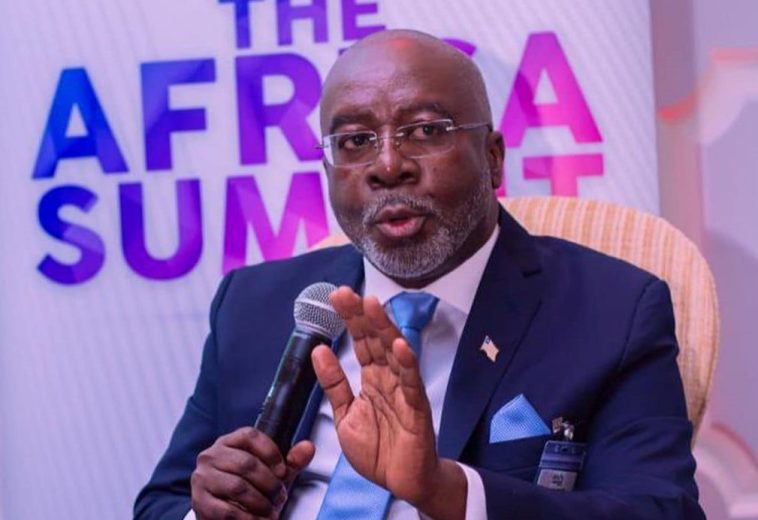Amidst the conclusion of the COP28 summit, Africa stands at a pivotal juncture, advocating vigorously for equitable climate finance and driving ambitious climate action. Positioned as a formidable force in global climate negotiations, African leaders have unified their voice, articulating the urgent need for tailored climate financing, inclusive representation, renewable energy transitions, and community-driven solutions.
This landmark gathering is instrumental in shaping Africa’s climate narrative, addressing historical disparities, and forging a sustainable pathway forward.
A central theme resonating throughout COP28 discussions is the pressing need for climate justice in Africa. The continent has historically borne the brunt of climate change impacts, despite contributing minimally to global emissions. Consequently, African nations are resolutely committed to securing increased financing dedicated to climate action. This united effort seeks to rectify the historical inadequacy of funding for critical adaptation and green investments. Bridging the gap between available funding and the actual requirements for bolstering Africa’s climate resilience remains an urgent priority.
In the global climate talks, African countries have long grappled with unequal representation, with these discussions predominantly steered by wealthier nations. COP28 marks a significant turning point as African nations fervently advocate for equitable participation, asserting their role as equal stakeholders in pivotal decision-making processes. This assertive stance aims to redress the imbalance in global climate negotiations, ensuring that Africa’s concerns and perspectives are given due consideration.
The inclusion of indigenous and local communities in restoration and climate efforts emerges as a core principle in Africa’s approach to climate action. Recognising the invaluable wisdom and expertise these communities offer, their involvement promises diverse perspectives and sustainable solutions. This emphasis on inclusion echoes Africa’s commitment to not only combating climate change but also ensuring that interventions are deeply rooted in local knowledge and practices.
The urgency to address energy crises through a robust shift towards renewable energy sources takes centre stage in COP28 discussions. African nations highlight the imperative to tackle energy challenges sustainably, emphasising the pivotal role of renewable energy in climate mitigation. This strategic focus aligns with Africa’s ambition to not only reduce emissions but also drive economic growth through sustainable energy solutions.
Unity and leadership emerge as fundamental pillars guiding Africa’s approach at COP28. Following the inaugural Africa Climate Summit, this unified voice amplifies the continent’s stance on climate issues, underscoring its commitment to driving substantive change. The summit serves as a platform for Africa to showcase its unity and leadership, positioning itself as a formidable force in global climate discussions.
COP28 holds critical significance for African nations regarding funding mechanisms, just transition initiatives, and alignment with landmark agreements such as the Nairobi Declaration. This momentous event presents an opportune juncture to steer the trajectory of climate finance towards Africa’s needs, ensuring that financial resources are allocated in a manner that fosters sustainable development.
Discussions at COP28 prominently feature interventions like nature-based solutions tailored to combat climate challenges within Africa’s protected areas. This strategic emphasis acknowledges the indispensable role of nature-based interventions in safeguarding vulnerable ecosystems, demonstrating Africa’s commitment to holistic approaches to climate resilience.
President Bola Tinubu’s pledge on Nigeria’s commitment to end gas-flaring resonates with Africa’s determination to mitigate methane emissions and underscores the continent’s proactive stance towards environmental stewardship. His emphasis on punitive measures and incentives echoes Africa’s approach to enforcing compliance and driving sustainable practices.
The commitments announced by global leaders like John Kerry and the Chinese Envoy underscore the momentum gained in mobilising substantial funding for methane reduction. However, the call for support from the international community by the Chinese Envoy highlights the shared responsibility in addressing global climate challenges.
COP28 signifies a transformative chapter in Africa’s climate resilience journey. The continent’s resolute stance on climate justice, financial parity, inclusive solutions, and sustainable energy transitions reaffirms Africa’s pivotal role in shaping a more equitable and sustainable global climate agenda. As the summit draws to a close, Africa stands poised to chart a resilient and sustainable path towards a climate-resilient future.


